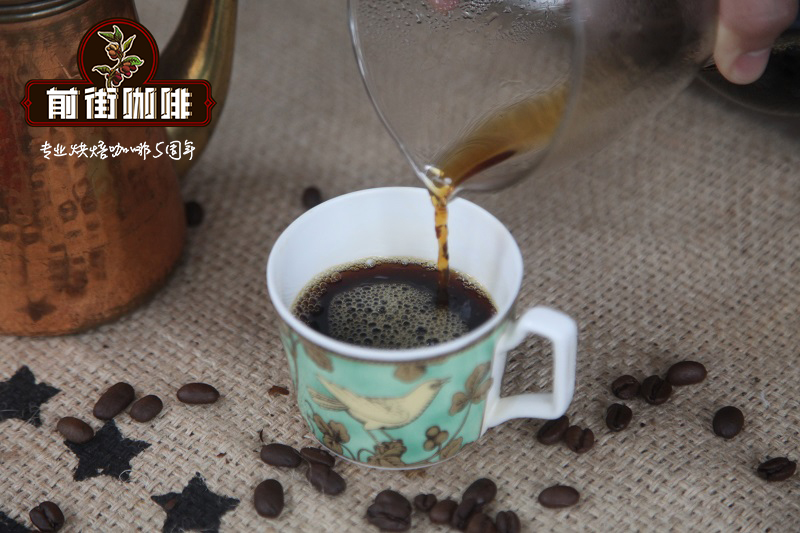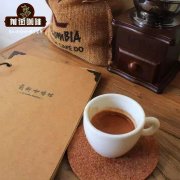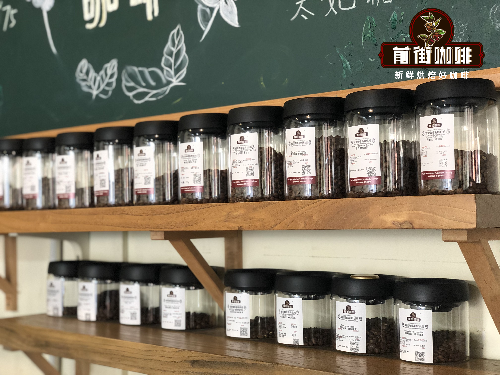Introduction of Java Coffee beans in Blawan Estate Brawan Manor, Indonesia _ Java five Coffee Manors

Professional coffee knowledge exchange more coffee bean information please follow the coffee workshop (Wechat official account cafe_style)
Java Coffee Manor Blawan is produced on the Blawan plantation in East Java on the Ijen plateau. Blawan (also known as Belawan or Blauan) is one of the five largest estates in the region, dating back to Dutch colonial times. Like most Java, unlike Sumatra and Sulawesi, our Blawan is wet processed, producing a noticeably clean cup with low acidity, large body, some nice chocolate notes and a sweet, syrup finish. The other four colonial estates in the area are Jampit (or Djampit), Pancoer (or Pancur), Kayumas and Tugosari--, with a total farmland of more than 9000 acres.
Java has been an important destination in the coffee trade for 300 years, returning to 1700s when the Dutch East India Company first introduced coffee to Indonesia. At that time, some local spices cherished by European traders led to the formation of direct trade routes to Indonesia, but in the end it was coffee and its rising popularity, which created the popular nickname "Java".
Java is home to Jakarta, Indonesia's vast capital, in the far west, but it is the Ijen plateau at the other end of the island, where coffee production has traditionally taken root in East Java province. Today, most of the high-end coffee in Java is produced on the Ijen Plateau, the first colonial estate established in the Netherlands. The Ijen plateau is actually closer to the neighboring island of Bali, just a short trip east across the sea of Bali and benefits from excellent, mineral-rich volcanic soil, commensurate with rainfall and humid, subtropical climate.
Java coffee usually does not have a wet shell or half-washed origin like Sumatra or Sulawesi; rather it is traditionally washed and is considered to be the cleanest of all Indonesian products for this reason. In addition to coffee, Java has a strong agricultural industry, producing many other cash crops, such as palm oil, rubber, cocoa, tea, rice and spices.
We recommend that you try to mix your hands in traditional Mocha Java using Jampit and one of our Ethiopian products or our very limited Yemeni Mocha Sanani stock. A hundred years ago, the Dutch went crazy about this, and in our humble opinion, a true classic will never fade!
Cupping notes: good balance, low acidity, whole body, pepper hint, very clean cup.
Java Coffee Blawan
Coffee cultivation in Indonesia has a 300-year-old story, which has been seriously affected by Dutch colonization. Today, Indonesia is the fourth largest coffee producer in the world. About 85% of East Java Coffee is owned and driven by the road to peace, standing in the official government organization that founded 1894 of the Netherlands. The remaining 15% of coffee production is in the hands of farmers, using traditional processing technology to own very small land. Compared with other Java coffees, which are mostly half-washed, these coffees from Java (including Blawan and Jampit estates) are completely washed. Since the fermentation process is about 36 hours, this kind of processing has a significant effect on the flavor. After drying the coffee to about 12% humidity, the beans are carefully arranged by hand to keep the cup shape consistent and clean.
END
Important Notice :
前街咖啡 FrontStreet Coffee has moved to new addredd:
FrontStreet Coffee Address: 315,Donghua East Road,GuangZhou
Tel:020 38364473
- Prev

Mexico La Perla La Perla / Pearl Manor Coffee Story _ Mexican boutique coffee beans recommended
Professional coffee knowledge exchange more coffee bean information please follow the coffee workshop (Wechat official account cafe_style) this Mexican coffee bean comes from two countries-Guatemala and Mexico, La Perla (La Perla) Manor is so interesting, La Perla in Spanish means pearl, La Perla means pearl, this manor is located in the Mexican province of Chiapas near Guatemala
- Next

Introduction of Indonesian West Java Honey treated Coffee Bean Variety introduction _ West Java Emmani how to drink?
Professional coffee knowledge exchange more coffee bean information please follow the coffee workshop (Wechat official account cafe_style) some time ago just arrived in Indonesia West Java coffee honey processed beans, the aroma has the unique rich aroma of ancient India, the taste is a little sour, belongs to the tin card bean species, interested friends can try. This Java coffee bean is expensive because of it.
Related
- Detailed explanation of Jadeite planting Land in Panamanian Jadeite Manor introduction to the grading system of Jadeite competitive bidding, Red bid, Green bid and Rose Summer
- Story of Coffee planting in Brenka region of Costa Rica Stonehenge Manor anaerobic heavy honey treatment of flavor mouth
- What's on the barrel of Blue Mountain Coffee beans?
- Can American coffee also pull flowers? How to use hot American style to pull out a good-looking pattern?
- Can you make a cold extract with coffee beans? What is the right proportion for cold-extracted coffee formula?
- Indonesian PWN Gold Mandrine Coffee Origin Features Flavor How to Chong? Mandolin coffee is American.
- A brief introduction to the flavor characteristics of Brazilian yellow bourbon coffee beans
- What is the effect of different water quality on the flavor of cold-extracted coffee? What kind of water is best for brewing coffee?
- Why do you think of Rose Summer whenever you mention Panamanian coffee?
- Introduction to the characteristics of authentic blue mountain coffee bean producing areas? What is the CIB Coffee Authority in Jamaica?

